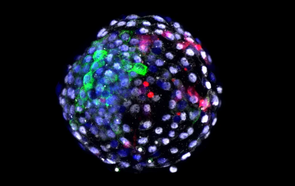
Profile
The positions in the table below reflect the Harvard University's position overall, domestically, within their sector, and in various subject areas based on their Share. Each position links to the corresponding table where Harvard University is listed.
Position by research output Share
Position by research output Share in subject areas
Research
Overall research output
| Count | Share | |
|---|---|---|
| Overall | 3651 | 1081.77 |
Overall Count and Share for 'Harvard University' based on the 12-month time frame mentioned above.
Research outputs by subject area
| Subject | Count | Share |
|---|---|---|
| Biological sciences | 1528 | 498.35 |
| Chemistry | 291 | 110.41 |
| Earth & environmental sciences | 129 | 33.83 |
| Health sciences | 1578 | 476.77 |
| Physical sciences | 882 | 199.81 |
Note: Articles may be assigned to more than one subject area, as a result the sum of the subject research outputs may not equal the overall research outputs.
Note: Hover over the donut graph to view the Share for each subject.
Share output for the past 5 years
Nature Strategy Reports
Identify research insights to guide research strategy and grow your impact with our Nature Strategy reports.
-
Actionable insights into research performance.
-
Detailed analysis of strengths and weaknesses.
-
Covers all major disciplines and regions of the world.

Explore the topics behind the 75,000 papers in the Nature Index 2024 Research Leaders
Collaboration
International vs domestic collaboration by Share
| Type | Percentage |
|---|---|
| International (4258 institutions) | 45.0% |
| Domestic (1500 institutions) | 55.0% |
Note: Hover over the graph to view the percentage of collaboration.
Top 5 domestic collaborators with Harvard University by Share
Collaborating institutions
Share
Top 5 international collaborators with Harvard University by Share
Collaborating institutions
Share
Job finder
-
Assistant Professor of Molecular and Cellular Biology
Harvard University - Department of Molecular and Cellular Biology Cambridge, Massachusetts -
TENURE-TRACK PROFESSOR IN EVOLUTIONARY BIOLOGY, HARVARD UNIVERSITY
Harvard University - Department of Organismic and Evolutionary Biology Cambridge, Massachusetts -
TENURE-TRACK OR TENURED PROFESSOR IN COMPARATIVE PHYSIOLOGY AND BIOMECHANICS, HARVARD UNIVERSITY
Harvard University - Department of Organismic and Evolutionary Biology Cambridge, Massachusetts
View more job listings on Nature Careers.
Latest supplement
Relationships
Affiliated joint institutions and consortia
- ACME Collaboration
- ARC Centre of Excellence for Enabling Eco-Efficient Beneficiation of Minerals
- Advanced Biomedical Instrumentation Center (ABIC)
- Allen Discovery Center at Boston Children's Hospital and Harvard Medical School
- Allen Discovery Center for Cell Lineage Tracing
- Ariadne Labs
- Asian Genetic Epidemiology Network (AGEN)
- Asian Genetic Epidemiology Network Type 2 Diabetes (AGEN-T2D) Consortium
- Association of Universities for Research in Astronomy (AURA)
- Autism Consortium
- Avian Phylogenomics Project
- BICEP2 Collaboration
- BioMEMS Resource Center (BMRC)
- Biota of North America Program (BONAP)
- Boston Attention and Learning Laboratory (BAL LAB)
- Boston Claude D. Pepper Older Americans Independence Center (OAIC)
- Boston – Bangalore Biosciences Beginnings (B4)
- Botswana Harvard AIDS Institute Partnership (BHP)
- Breast and Prostate Cancer Cohort Consortium (BPC3)
- Broad Institute of MIT and Harvard
- CARDIoGRAMplusC4D Consortium
- CARe Consortium
- CDF Collaboration
- CKDGen Consortium
- Center for Cancer Systems Biology (CCSB)
- Center for DNA Nanotechnology (CDNA)
- Center for Engineering in Medicine (CEM)
- Center for Glycoscience
- Center for Integration of Medicine and Innovative Technology (CIMIT)
- Centre International de Recherche et de Formation en Génomique Appliquée et de Surveillance Sanitaire (CIGASS)
- Chimpanzee Sequencing and Analysis Consortium
- Clinical Proteomic Tumor Analysis Consortium (CPTAC)
- Collaboration for AIDS Vaccine Discovery (CAVD)
- Cyprus International Institute for Environmental and Public Health (CII)
- DIAGRAM Consortium
- DISCO (Deciphering disorders Involving Scoliosis and COmobidities) study group
- Discovery, Biology, and Risk of Inherited Variants in Breast Cancer (DRIVE)
- Drosophila 12 Genomes Consortium
- ENCODE Consortium
- Early Genetics and Lifecourse Epidemiology (EAGLE) Consortium
- Early Growth Genetics Consortium (EGG)
- Energy Frontier Research Center for Excitonics (EFRC)
- Family Investigation of Nephropathy and Diabetes (FIND)
- FlyBase Consortium
- Functional Annotation of the Mammalian Genome (FANTOM)
- Future Circular Collider Design Study (FCC)
- GUGC Consortium
- Genetic Factors for Osteoporosis (GEFOS) Consortium
- Genetic Investigation of ANthropometric Traits (GIANT) Consortium
- Genetics and Epidemiology of Colorectal Cancer Consortium (GECCO)
- GliomaScan Consortium
- Global BPGen Consortium
- Global Lipids Genetics Consortium (GLGC)
- GoT2D Consortium
- HD iPSC Consortium
- HIV Pathogenesis Programme (HPP)
- HSPH-Cyprus Program (HCP)
- Hall A Collaboration
- Hansjorg Wyss Institute for Biologically Inspired Engineering
- Harvard Chemical Biology PHD Program
- Harvard Department of Population Medicine (DPM)
- Harvard SEAS‐CUPB Joint Laboratory on Petroleum Science
- Harvard Stem Cell Institute (HSCI)
- Harvard-China Project on Energy, Economy and Environment
- Harvard-MIT Center for Regulatory Science
- Harvard-MIT Health Sciences and Technology (HST)
- Harvard-MIT Program in Speech and Hearing Bioscience and Technology (SHBT)
- Harvard-NUIST Joint Laboratory for Air Quality and Climate
- Harvard-Smithsonian Center for Astrophysics (CfA)
- Heliconius Genome Consortium
- ImmGen Consortium
- Indo-US Joint Center on Nanobiotechnology
- Institute for Collaborative Biotechnologies (ICB)
- International Consortium for Blood Pressure (ICBP)
- International Headache Genetics Consortium (IHGC)
- International Lung Cancer Consortium (ILCCO)
- International Multiple Sclerosis Genetics Consortium (IMSGC)
- Ivan and Francesca Berkowitz Family Living Laboratory
- Keck Array Collaboration
- Ludwig Center at Harvard Medical School
- MGH/HST Athinoula A. Martinos Center for Biomedical Imaging
- MIT-Harvard Center for Cancer Nanotechnology Excellence (CCNE)
- MIT-Harvard Center for Ultracold Atoms
- Malaria Evolution in South Asia (MESA-ICEMR)
- Massachusetts Consortium on Pathogen Readiness (MASSCPR)
- Max Planck-Harvard Research Center for the Archaeoscience of the Ancient Mediterranean (MHAAM)
- Meta-Analyses of Glucose and Insulin-related Traits Consortium (MAGIC)
- MicroArray Quality Control (MAQC) Consortium
- Mobility European Master in Evolution Programme (MEME)
- Myocardial Infarction Genetics Consortium (MIGen)
- NIH Roadmap Epigenomics Mapping Consortium
- NSF AI Institute for Artificial Intelligence and Fundamental Interactions (IAIFI)
- Neuroimaging Research for Veterans Center (NeRVe)
- Organization for Tropical Studies (OTS)
- Prostate Cancer Association Group to Investigate Cancer Associated Alterations in the Genome (PRACTICAL) Consortium
- Psychiatric Genomics Consortium (PGC)
- Quantum Science Center (QSC)
- Ragon Institute of MGH, MIT and Harvard
- Rare Kidney Stone Consortium (RSKC)
- Research Center for Disease Biophysics of Sogang-Harvard
- Statistical Methods Development
- Synthetic Biology Engineering Research Center (SynBERC)
- The 1000 Genomes Project
- The AMD Gene Consortium
- The ATLAS Collaboration
- The Autism Genome Project Consortium (AGP)
- The BaBar Collaboration
- The Harvard/MIT MD-PhD Program
- The NEIGHBORHOOD Consortium
- The Northeastern Collaborative Access Team (NE-CAT)
- The QT Interval International GWAS Consortium (QT-IGC)
- The SIGMA Type 2 Diabetes Consortium (SIGMA T2D Consortium)
- The WUT-Harvard Joint Nano Key Laboratory
- Tobacco and Genetics Consortium (TAG)
- Type 2 Diabetes Genetic Exploration by Next-generation sequencing in multi-Ethnic Samples (T2D-GENES) Consortium


